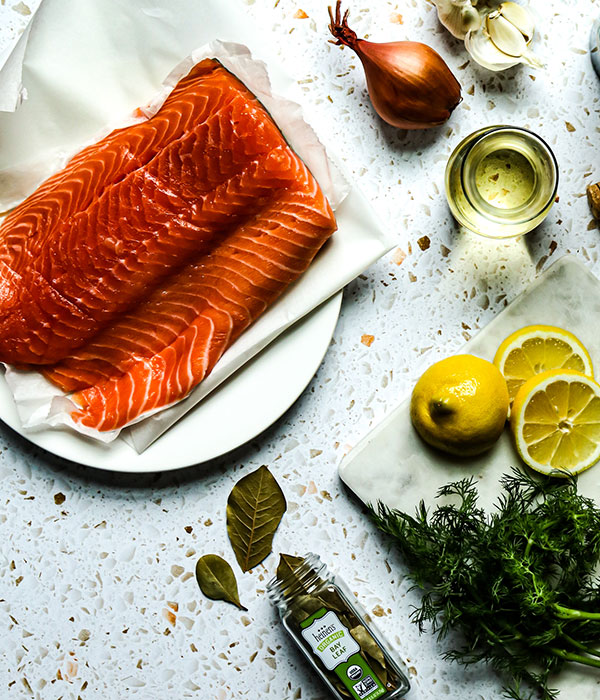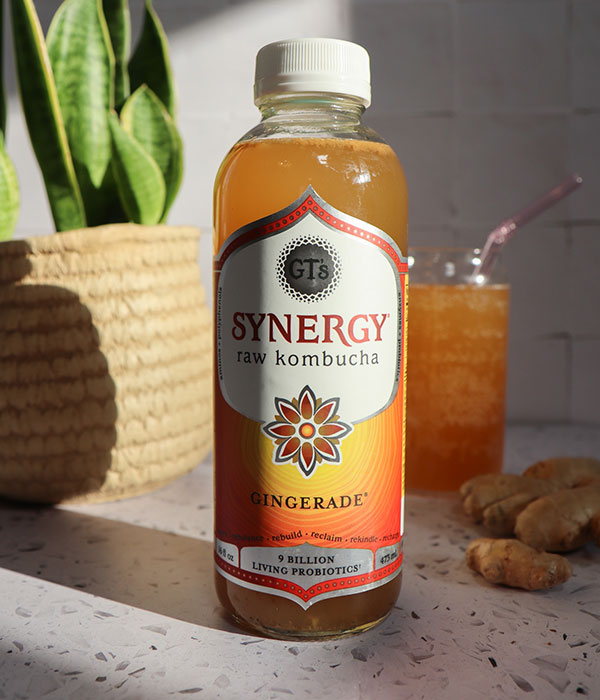Powerful Foods to Help Fight Seasonal Allergies

The following article was written by Heinen’s Chief Dietitian, Melanie Jatsek RD, LD.
‘Tis the season for runny noses, itchy eyes, wheezing and sneezing. Yes, I’m talking about allergy season!
While battling these symptoms isn’t life-threatening, it can really take a toll on your energy levels and quality of life. Sure, you can take one of those over-the-counter medicines, but if you’re extra sensitive like me, you’ll wind up feeling either groggy or hyped up like you just downed a pot of coffee.
These medications are like band aids. They only mask a deeper issue, that of a compromised immune system.
How Immune Health Affects Seasonal Allergies
What does your immune system have to do with seasonal allergies? Let me paint the picture with a personal experience dating back to the spring of 2015. It was then that I discovered how a healthy immune system could combat—and in my case, eradicate—seasonal allergies. And it all happened by accident!
In March of 2015 I attended a gut health training led by an educator from a well-respected supplement company. At the conclusion of the training, I graciously accepted a free bottle of their new probiotic supplement and began taking it the next day.
Fast-forward to spring, a time of year that, since my middle school days, brought severe pollen allergies. But this year was remarkably different. My allergies all but vanished! The only thing I changed was the addition of a daily probiotic supplement containing billions of healthy bacteria.
I remembered what the educator said: 70% of your immune system is in your gut, and seasonal allergies are an immune response to an environmental trigger. For me, that trigger was pollen.
My gut was apparently lacking the healthy bacteria that would ultimately give my immune system the fuel it needed to diffuse the pollen trigger. The probiotic was the source of that fuel.
5 Foods to Hep Fight Seasonal Allergies
By using the 7 Club Fx Pillars as your guide, you can turn your eating habits around to support a healthy gut and well-functioning immune system. What’s more, a diet built on Fx™ friendly foods helps a probiotic supplement do its job!
These five foods are especially powerful at combating seasonal allergies:
1. Omega-3-Rich Fish like Salmon, Sardines, Trout, Tuna and Mackerel: can reduce overall inflammation in the body and help ease nasal swelling and stuffiness. Bookmark this 15-minute Mackerel Pesto Pasta. It’s one of my favorites!

2. Raw Onions are a great source of quercetin, a bioflavonoid that gives color to flowers, fruits and vegetables. Quercetin inhibits the release of histamines, which are chemicals that cause allergic reactions like runny nose and watery eyes. For the most quercetin, choose red onions. Add diced onions to guacamole and enjoy with red pepper strips, celery sticks and cucumber slices.
3. Vitamin C-Rich Fruits like Berries, Citrus and Kiwi may help reduce symptoms of allergic rhinitis, an immune response to allergens that causes sneezing, runny nose and watery eyes. Add orange segments or a handful of berries to leafy green salads and enjoy with dinner.

4. Raw Honey contains immune-boosting ingredients like bee pollen and propolis, which can help build immunity to allergens when eaten regularly. It’s also a source of quercetin! Stir a teaspoon of Akron Honey into your morning or afternoon tea. Note: Raw honey should never be given to children under the age of one due to a risk of botulism. Those suffering from severe pollen allergies should also avoid honey because it can cause anaphylaxis, a serious and potentially life-threatening allergic reaction.
5. Probiotic-Rich Foods are fermented and contain friendly bacteria. Forager cashewmilk yogurt, Cleveland Kitchen sauerkraut and GT’s kombucha are examples. Drink a daily smoothie blended with a couple spoonfuls of Forager unsweetened vanilla bean yogurt.

Key Takeaway
Easing seasonal allergies is all about strengthening your immune system. To do this, you must first improve the quality of your diet. Once you’ve made that commitment, the next step is to take a daily probiotic supplement. You may not notice a difference right away, but your efforts will pay great dividends in the end.
Sources


